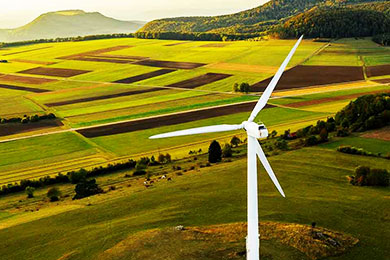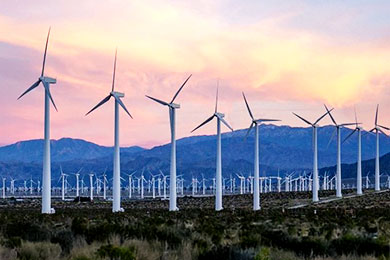
Jared Concannon
Head of Climate Tech, Chubb Overseas General
A burger made of seaweed, a car that can give extra electricity back to the grid, a hydrogen-powered truck or power plant are all possible thanks to climate technologies. Such technologies are critical in the transition towards a low carbon economy. Entrepreneurs who develop them can face a host of challenges, from originating a breakthrough technology and making it commercially viable, to getting financing for the venture and setting up operations. Historically, insurance in many cases has been an additional hurdle climate tech companies face. A recent Nasdaq article referred to insurance as “the biggest gap you’ve never heard of” in the climate technology movement.
Climate tech companies need much of the same property and general liability insurance as most other companies. However, as they innovate emerging technologies such as cell-based meats, carbon capture, or hydrogen energy, climate techs are presenting untested exposures to insurers. Thus, they face the risk of not being adequately covered or facing an uncertain claims handling process from their insurer.
Without the right insurance, companies have limited access to capital and cannot thrive. The stakes are high: McKinsey’s research suggests that climate technologies could attract $1.5 trillion to $2 trillion of capital investment per year by 2025. To close the insurance gap for climate tech, Chubb is building the Climate Tech Industry Practice as part of Chubb Climate+.
Chubb’s Climate Tech Industry Practice
Chubb’s Climate Tech Industry Practice aims to partner with and support pioneers who develop, manufacture, install or operate climate technologies. Our team of specialty climate tech underwriters is developing underwriting products, tools, and resources to help their companies get the right insurance.
We have categorized the clients we serve within the climate tech practice into six categories:
- Renewable and alternative energy
- Food and agriculture
- Transport and mobility
- Built environment and energy efficiency
- Storage and transmission
- Carbon technology and climate finance
The risk profile of this grouping of industries is complex and nuanced. Within industries, there may be common threads in terms of risk exposures as climate tech presents a broad array of risk profiles. The spectrum of risk exposure can range from risks associated with various stages of hydrogen energy projects (e.g., fires or explosions) to the biological hazards (contamination) and the genetic engineering aspects of laboratory-produced food, to delays faced by renewable energy firms trying to navigate bottlenecks in permitting and connectivity to the grid. The complexity and speed of innovation of the companies within this practice underscores the need for dedicated and specialized experts — underwriters and risk engineers — such as the team we are building.
Beyond climate tech companies
The maxim that all companies are technology companies is by now a given. Similarly, many companies will increasingly be utilizing climate technologies as each industry transitions towards a low carbon economy.
The increasing awareness of climate change has led to social expectations, consumer demand, and regulatory standards around climate tech solutions. Companies across different industries and regions, and in various stages of development are implementing climate technologies to meet their stakeholders’ climate-related demands and becoming exposed to climate technology risks.
Among the multiple possible scenarios: A food conglomerate known for its tasty snacks and yogurt is starting a laboratory to make plant-based foods. A storied automaker is significantly increasing its production of electric vehicles. A popular hotel chain is adding EV charging stations to its parking lots. A real estate developer building a new residential apartment complex is now using solar panels on all roofs.
Being exposed to new risks associated with climate technologies, these companies — and their insurance brokers — are now in need of specialty underwriting know-how to ensure that they are managing their risks and have access to optimal insurance solutions.
The Chubb Climate Tech Industry Practice is a resource Chubb Insureds can tap into for the knowledge and expertise we are developing about assessing, mitigating, and transferring climate tech-related risks. We are here to partner with our customers as climate technologies increasingly become a critical part of the business ecosystem in the global drive towards a low carbon economy.
This webpage is advisory in nature and is offered as a resource to be used together with your professional insurance advisors in maintaining a loss prevention program. It is an overview only, and is not intended as a substitute for consultation with your insurance broker, or for legal, engineering or other professional advice.
Chubb is the marketing name used to refer to subsidiaries of Chubb Limited providing insurance and related services. For a list of these subsidiaries, please visit our website at www.chubb.com. Insurance provided by ACE American Insurance Company and its U.S. based Chubb underwriting company affiliates. All products may not be available in all states. This communication contains product summaries only. Coverage is subject to the language of the policies as actually issued. Surplus lines insurance sold only through licensed surplus lines producers. Chubb, 202 Hall's Mill Road, Whitehouse Station, NJ 08889-1600.












